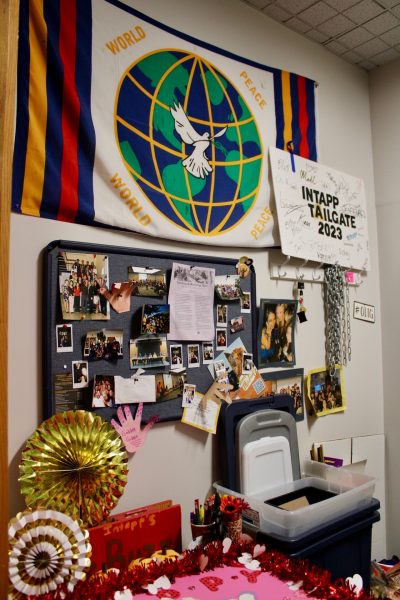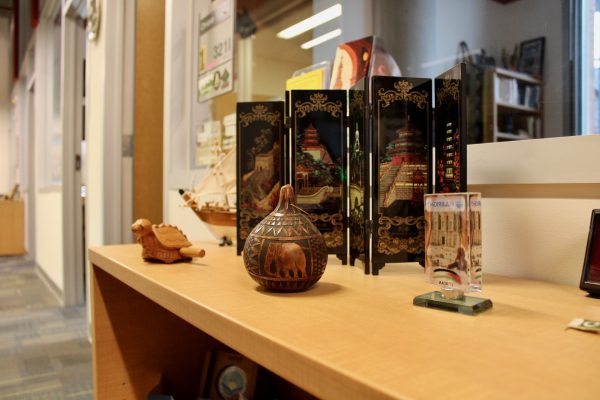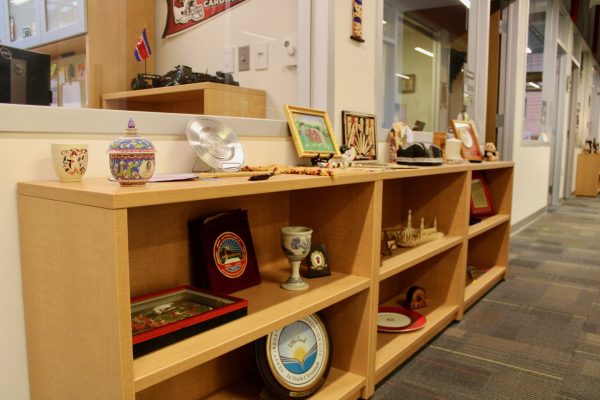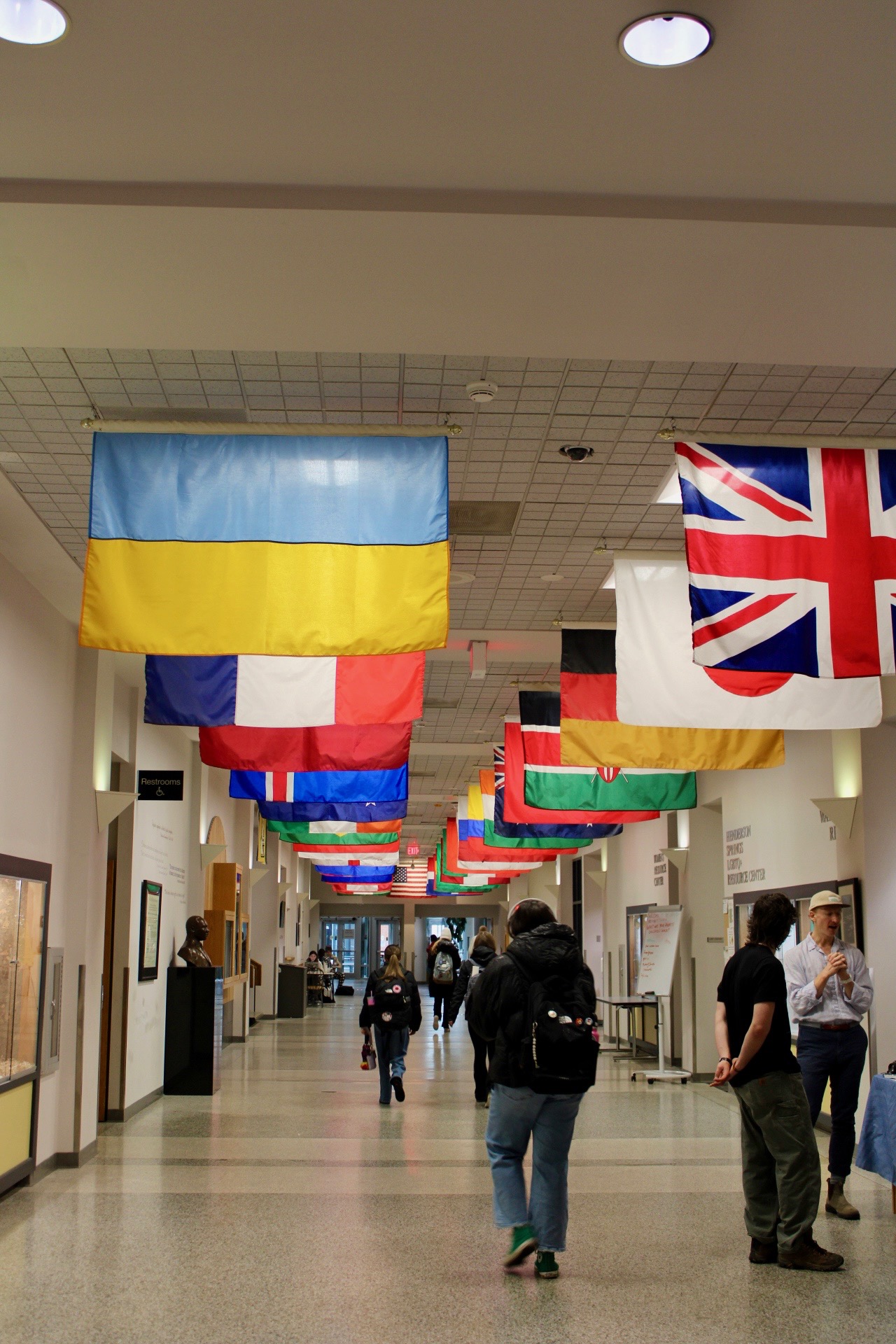The transition of power between two election cycles has brought controversial policy changes, executive orders and public remarks from the government’s new leaders, impacting people from a wide range of demographics and nationalities.
A portion of the affected population includes international students at App State, who Karen Marshall, director of International Student and Scholar Services and Outreach, helps oversee.
Marshall said this academic year, just over 130 students are attending App State on an F-1 or J-1 visa. F-1 holders are full-time and degree-seeking students, while J-1 holders are non-degree seeking exchange students who are typically here for shorter periods of time, like a single semester.
“They’re small, but they can be close-knit,” Marshall said. “They form a really global community.”

Marshall said a good resource for keeping up with immigration executive orders is through NAFSA: Association of International Educators. She said at this time, it is unclear how many of the executive orders might end up impacting higher education.
“There’s just uncertainty in that we don’t quite know how they’re going to play out, or there’s just more to come,” Marshall said.
Within that uncertainty, Marshall said there are a few executive orders that could have more impact on App State students than others.
One of them is Executive Order 14188, which directly mentions higher education and is titled “Additional Measures to Combat Anti-Semitism.” The order outlines that students at universities who participate in pro-Palestine or anti-Israel protests could face repercussions.
Marshall said that although the repercussions have the potential to affect any student, they could be “particularly harmful for international students or anyone who’s an immigrant here on a visa.”
Because those repercussions are unclear right now, Marshall said she thinks it’s something for campuses to “keep a close eye on.”
Executive Order 14159, titled “Protecting the American People Against Invasion,” is another policy change with potential to affect App State international students. This order provides U.S. Immigration and Customs Enforcement the power to make arrests in previously established places of asylum, like schools, churches and hospitals.
Marshall said in the wake of these changes, the Office of International Programs at App State is a good resource for anyone who has immigration related questions.
“We would be happy to have a conversation with anyone who has concerns,” Marshall said.
Morgana Cording, a graduate student from Hannover, Germany, is studying history and religious studies. Cording said she speaks with her friends back home frequently about the political landscapes of both the U.S. and Germany.
“I started to compare the political situations, and how this would actually impact not only my situation as an exchange student, but also globally how this might change the world,” Cording said.
Cording said she believes Elon Musk is one of the connections between politics in the two countries.

According to the White House, Musk is a senior advisor to President Donald Trump with a focus on government efficiency.
Trump appointed Musk to a key role of the new Department of Government Efficiency, which acts as a financial advisory board.
Since being appointed, Musk has publicly expressed his support for Germany’s far-right political party, Alternative for Germany. At the end of January, Musk virtually spoke at one of the party’s campaign events.
His virtual appearance where he showed his support for the party came only a few days after he made an arm gesture that was widely debated by the public. Some, like Cording, believe the gesture was similar to the Nazi salute, while others believe the action was completely unrelated.
“Do it in Europe and you’re going to have huge trouble,” Cording said. “There’s no excuse for it.”
Cording said if the connections between the far-right political landscapes of both countries as seen through Musk weren’t happening at the same time, she “wouldn’t be as scared.”
Another international student from Germany, raised similar concerns about Musk and the support the billionaire has given to the AfD. The student said they believe the AfD Party feels “like a threat to our democracy in Germany,” and Musk’s actions are ill-informed.

“He’s criticizing the German government without knowing what is actually happening in Germany, and just supporting the far right party,” said the student.
Similarly to Marshall, the student also said this time is feeling uncertain. They said some of Trump’s remarks about the future could have impacts on Germany and the country’s relationship with the U.S., although none of them have resulted in immediate action.
One thing they expressed concern about was a remark Trump made on his campaign trail. At a rally in Savannah, Georgia, Trump mentioned his interest in making German car manufacturers U.S. companies, which they believe would have a “significant negative influence” on Germany’s economy.
“He’s just saying he’s going to do things, and we just don’t know what he’s going to do in the end,” they said. “Now we’re just waiting.”



MuChao • Feb 25, 2025 at 8:57 pm
“His virtual appearance where he showed his support for the party came only a few days after he made an arm gesture that was widely debated by the public. Some, like Cording, believe the gesture was similar to the Nazi salute, while others believe the action was completely unrelated. ”
Seriously? The Appalachian is going to beat around the bush, too? This is just plain cowardly.
JFC. It. Was. A. Nazi. Salute. Period.
And now others in the GOP are doing the same (look at what happened at CPAC recently.) Stop helping to normalize this by saying crap like “some believe…” or calling it “an arm gesture…” Call it what it is for crying out loud.